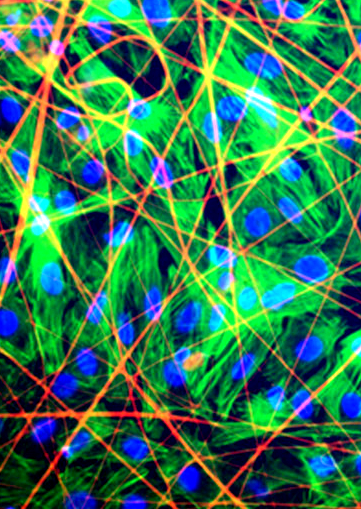Spiderweb tests in new organ quest
 Bio-engineers have grown cardiac tissue on a bed of genetically-engineered spiderweb.
Bio-engineers have grown cardiac tissue on a bed of genetically-engineered spiderweb.
Researchers around the world are looking for ways to clone and grow replacement organs, ending the challenges of organ donor shortage and transplant rejection.
One of the major hurdles in this quest has been finding a suitable frame, or substrate, to grow cells on.
The material must be non-toxic, elastic, and unable to be rejected by the body or impede cell growth.
Now, a group of researchers at the Moscow Institute of Physics and Technology’s Laboratory of the Biophysics of Excitable Systems say they may have found a good base.
The group has been cultivating fully functional cardiac tissues, able to contract and conduct excitation waves, from cells called cardiomyocytes.
They had used synthetic polymers to grow the cells on, but recently tested a new medium – electro-spun fibres of spidroin; the “cobweb protein”.
Spiderweb is incredibly light and durable; five times stronger than steel, twice more elastic than nylon, and capable of stretching a third of their length.
The team tested whether a spidroin substrate derived from genetically modified yeast cells could provide a useful base to grow cardiac cells.
To do this, they seeded individual rat heart cells on fibre grids.
They monitored the growth of the cells and tested their contractibility and the ability to conduct electric impulses, which are the main features of normal cardiac tissue.
Within three to five days a layer of cells formed on the substrate that were able to contract synchronously and conduct electrical impulses just like the tissue of a living heart would.
“We can answer positively all questions we put at the beginning of this research project,” said research leader Professor Konstantin Agladze.
“Cardiac tissue cells successfully adhere to the substrate of recombinant spidroin; they grow forming layers and are fully functional, which means they can contract coordinately.”







 Print
Print